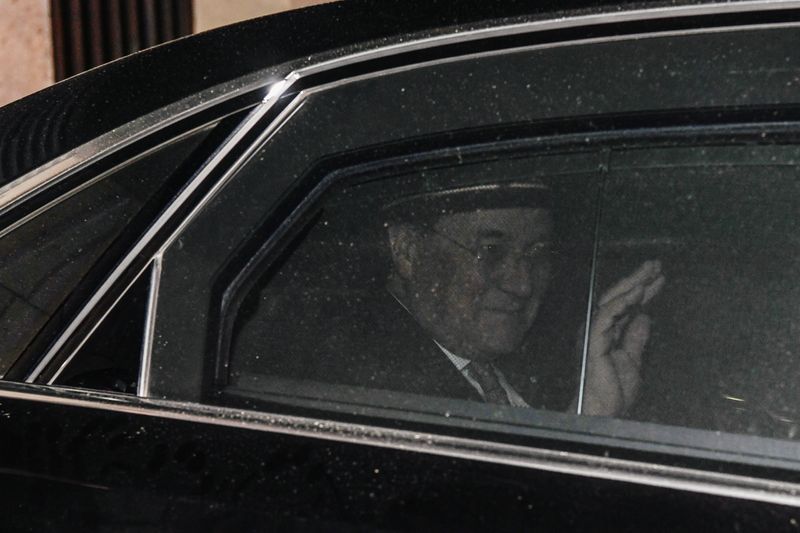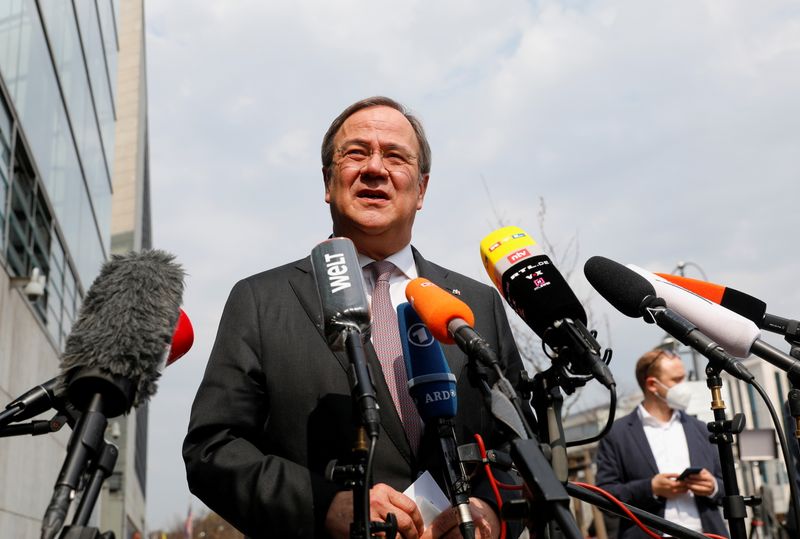BERLIN (Reuters) - Armin Laschet, leader of Germany's Christian Democrats (CDU), won the backing of senior party members at an internal meeting to run as the conservative candidate to succeed Angela Merkel at a September federal election, party sources said on Tuesday.
With Chancellor Merkel stepping down after the election, pressure is mounting on the conservatives to agree on a candidate as its ratings wallow near a one-year low, hurt by the chaotic handling of the COVID-19 pandemic.
Laschet and Markus Soeder, who leads the CDU's Bavarian sister party CSU, have been at loggerheads over who is better placed to become the candidate to lead the conservative alliance, dubbed 'the Union', to an election victory.
By backing Laschet, 60, the CDU elite has prioritised its ascendancy in the conservative bloc over the prospect of being led to victory by Soeder, 54, who would then hold sway over the alliance and could potentially dominate it for years.
After more than six hours of debate going into the night, the CDU's federal executive committee voted in favour of Laschet with 31 out of 46 members which represents a majority of 77.5%, party sources said.
Soeder, who did not participate in the virtual CDU meeting, won the backing of nine members while six others abstained, according to the participants.
Earlier in the debate, Laschet said his conservative rival Soeder had made clear that he would accept the decision of the CDU federal executive committee, the sources said. "This is a very important signal," Laschet was quoted as saying.
Polls suggest that Soeder is more popular than Laschet, so the prospect of losing votes with Laschet as the candidate for chancellor has unnerved some members of his own CDU party.
The disarray in the conservative camp was in contrast to the opposition Greens who on Monday, with no internal wrangling, named their co-leader Annalena Baerbock as their first candidate for chancellor in the party's 40-year history.
The conservatives retain a narrow lead in polls over the Greens, but the leadership rift threatens to harm their efforts to extend their 16-year-old hold on power without Merkel, who has won them four consecutive victories.
Laschet is widely seen as a candidate who would continue Merkel's legacy, though he has clashed with her over coronavirus restrictions. Soeder is an astute political operator who has sided with Merkel during the pandemic.
Laschet has said that for him, one of the policy priorities as chancellor would be to keep Europe together and steer the bloc out of its current coronavirus crisis.
No chancellor has ever come from the CSU.

A Forsa poll last week put support for the conservative alliance at 27%, ahead of the Greens at 23%.
